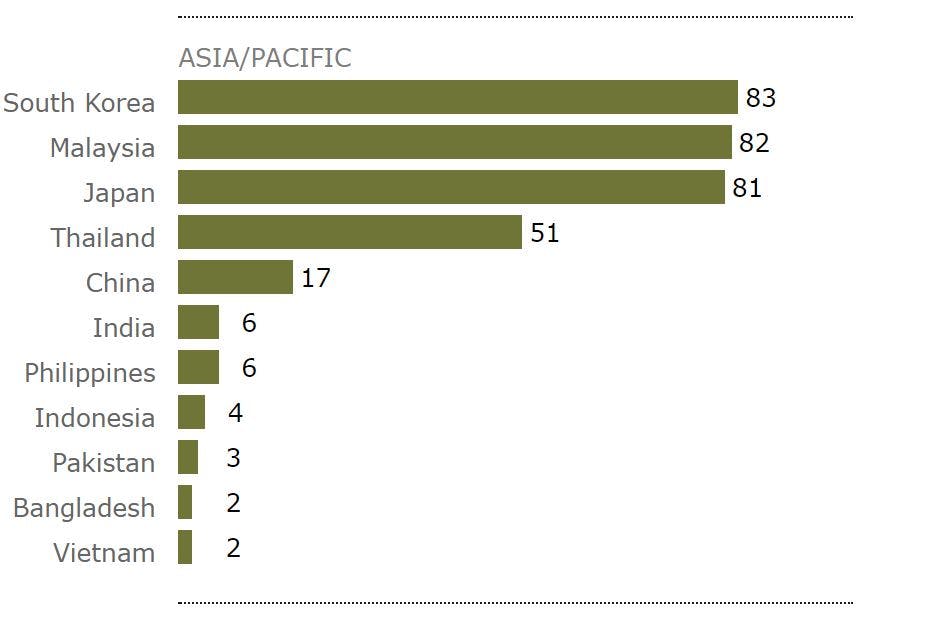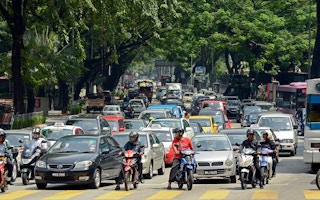Green mobility took centrestage at Malaysia’s showcase of energy efficient and clean modes of transportation at the Expo 2017, a four-month long international exposition on the future of energy.
To continue reading, subscribe to Eco‑Business.
There's something for everyone. We offer a range of subscription plans.
- Access our stories and receive our Insights Weekly newsletter with the free EB Member plan.
- Unlock unlimited access to our content and archive with EB Circle.
- Publish your content with EB Premium.
Before an audience of country officials, NGOs, business, and cleantech enthusiasts, Malaysia’s pavilion on Monday launched the Green Mobility Week on week 9 of the Expo, which is being held in Astana, Kazakhstan from June 10 to September 10 this year. It highlighted the country’s existing policies and plans to transition to a clean transport sector.
A country with one of the world’s highest per-capita ownership of cars, Malaysia has reaffirmed its commitment to wean its transport sector off fossil fuels and transition to cleaner alternatives by 2020.
It hopes to significantly reduce air pollution in the country and lower its carbon footprint by doing so.
In the Asia Pacific region, Malaysia ranked second among 11 countries in terms of percentage of households owning cars, registering a high 82 per cent ownership, reported a 2014 Pew Research survey.

Percentage of households owning cars in Asia Pacific in 2014. Source: Pew Research
The country was second to South Korea which had 83 per cent and just ahead of Japan, which had 81 per cent.
As of this year, new car registrations in Malaysia increased to 98,479 cars in May from 86,724 cars in April.
But this trend is now expected to slow down, with the Malaysian government pushing ahead to implement its clean transport development plans and policies.
One such policy is the Electric Mobility Blueprint (EMB) launched in 2015.
The EMB has set ambitious targets to have 2,000 electric buses, 100,000 electric cars, 100,000 electric scooters and motorcycles, and 125,000 public electric vehicle charging stations by 2020.
The clean transport transition is expected to reduce Malaysia’s emissions from the transportation sector by up to 0.6 metric tonnes of CO2 equivalent (MtCO2eq) by 2020 and 6.4 MtCO2eq by 2030.
Malaysia is also setting a goal to become the ASEAN region’s premiere electric vehicle market hub, with the pioneering launch in 2014 of Cohesive Mobility Solution (COMOS), the region’s first sharing programme for electronic cars and bicycles, under the Green Technology Master Plan program.
A public-private partnership between GreenTech Malaysia, the Malaysian Automotive Institute (MAI) and car sharing service provider CMS Consortium Sdn Bhd, COMOS includes setting up charging stations in strategic locations between train stations, office buildings, hotels or shopping complexes, encouraging Kuala Lumpur’s urban commuters to take public transport during the rest of their journey.
The public can access COMOS’s fleet of EVs through annual membership and mobility-on-demand methods, making it a cheaper alternative to owning and maintaining private cars.
To complete the country’s transport sector overhaul, the Malaysian government also reiterated at the Expo, plans to invest in two new Mass Rapid Transit (MRT) lines, a Light Rail Transit (LRT) line, and an extension of an existing LRT line. All of the trains will be powered by electricity rather than fossil fuels and are expected to be operational by 2020.
Malaysia’s participation at the Expo was organised by Malaysia’s Ministry of Energy, Green Technology and Water and implemented by its agency GreenTech Malaysia.










